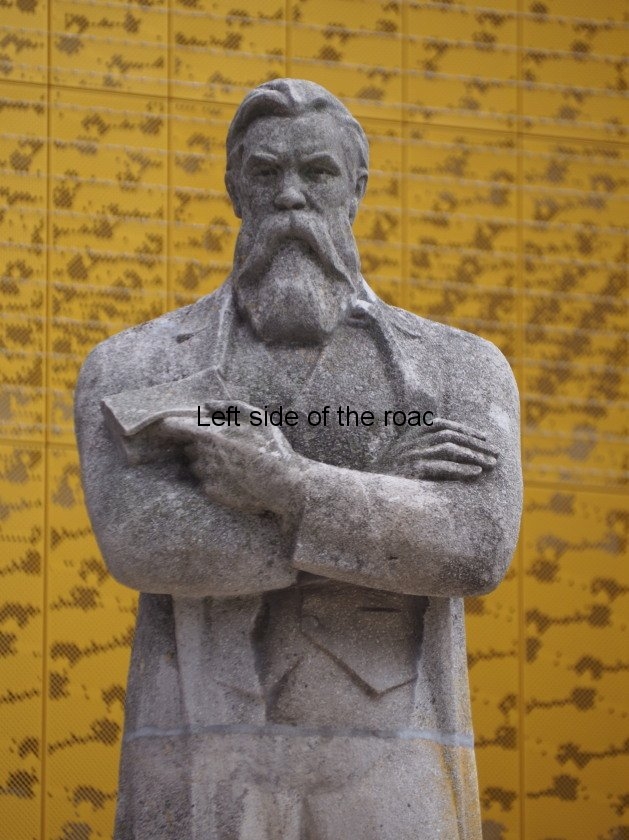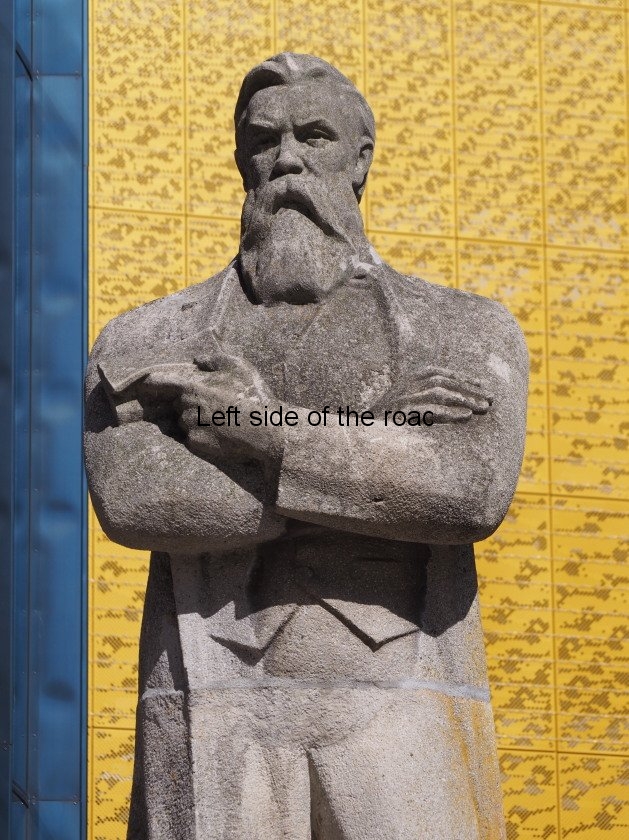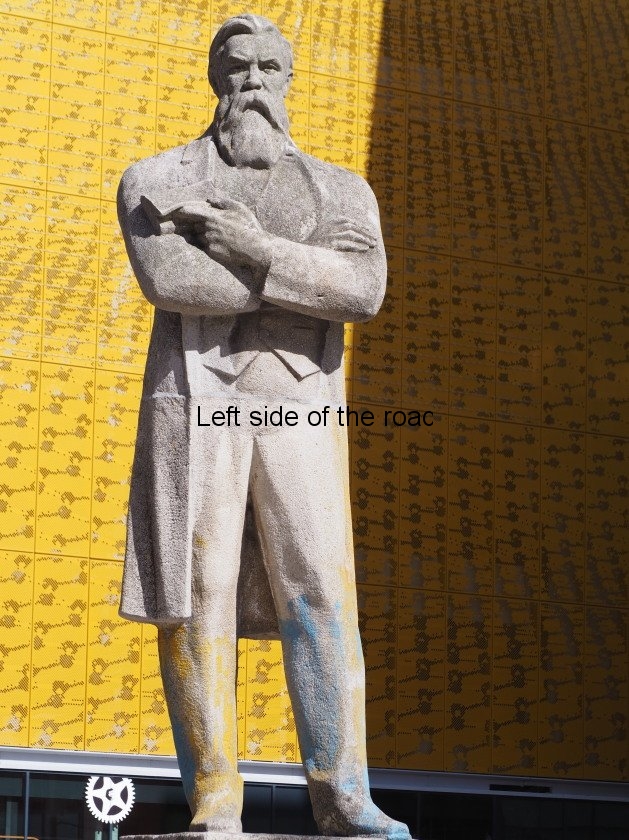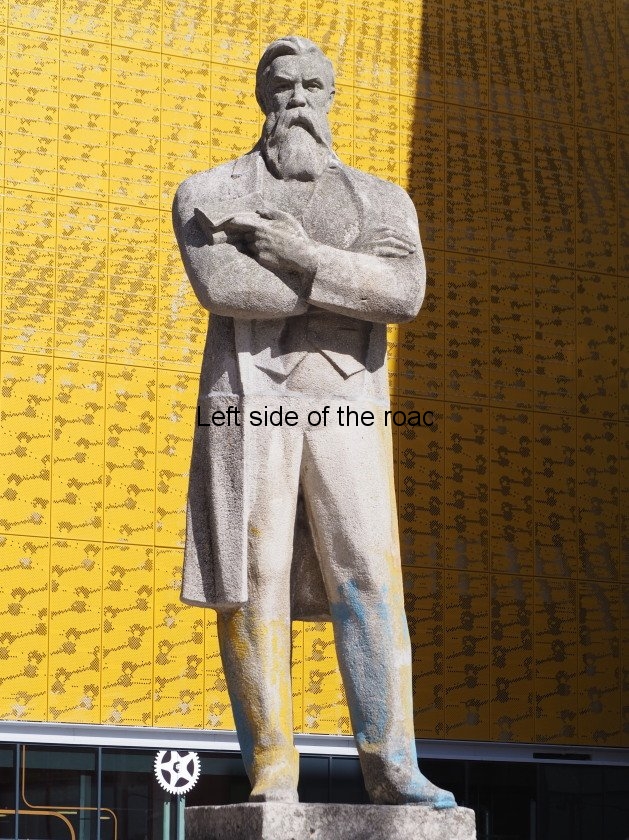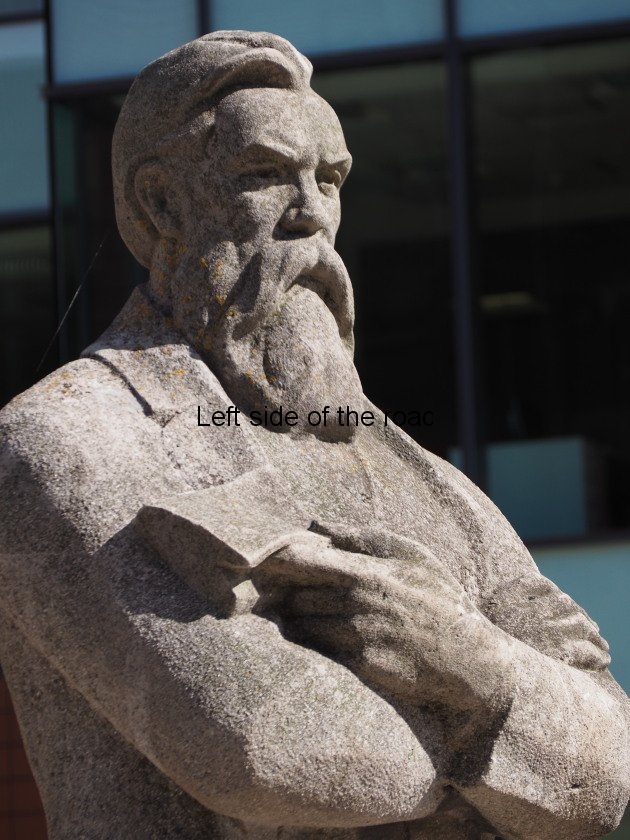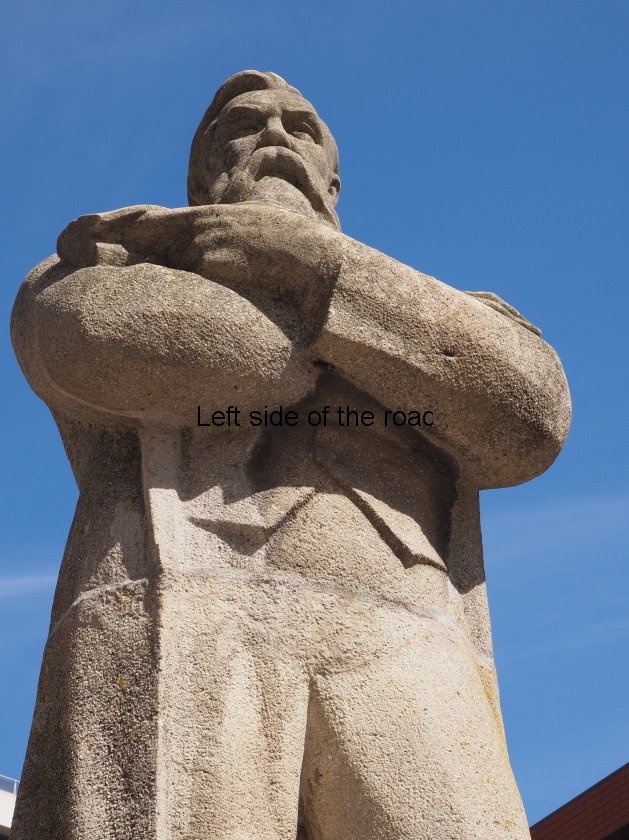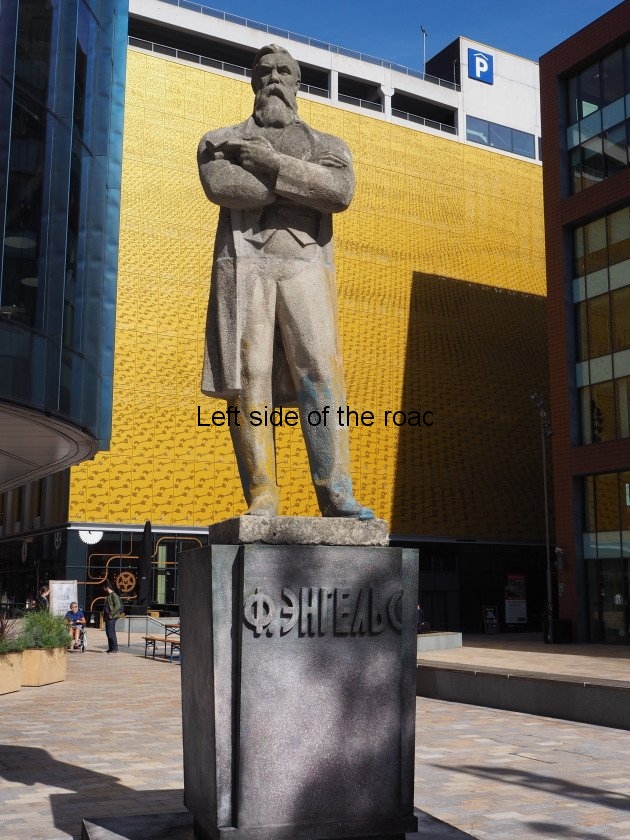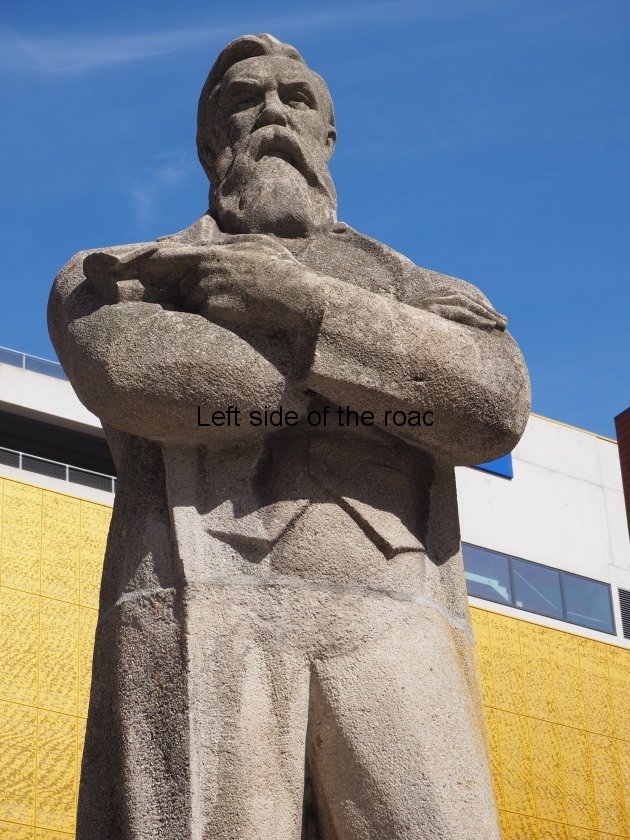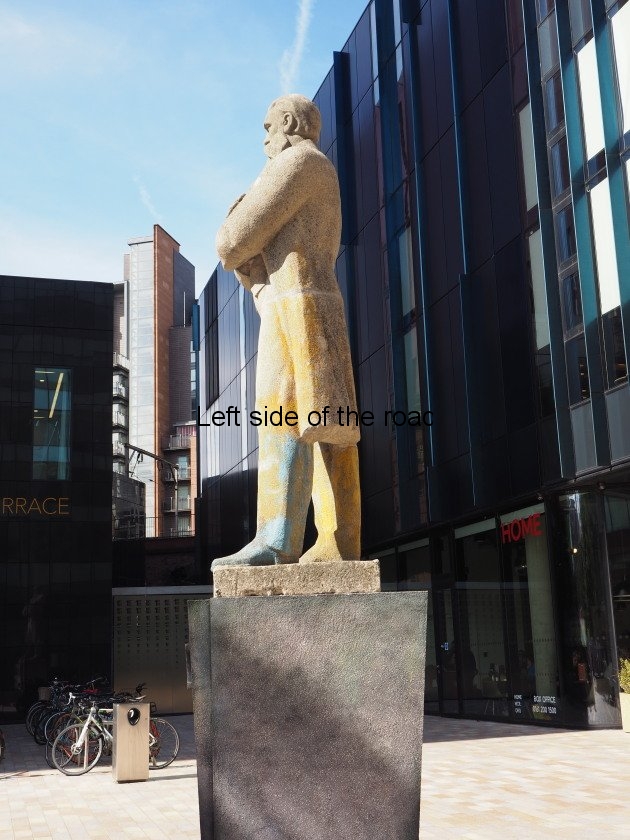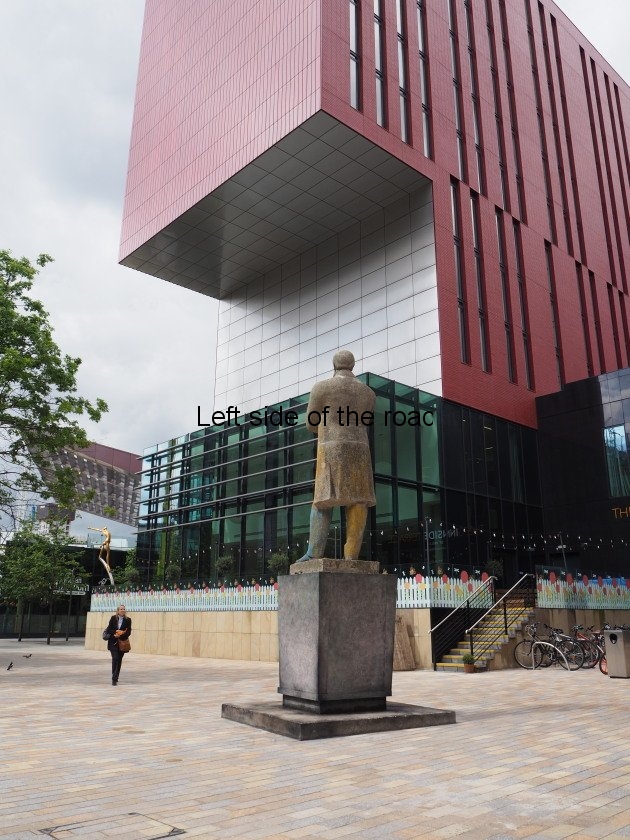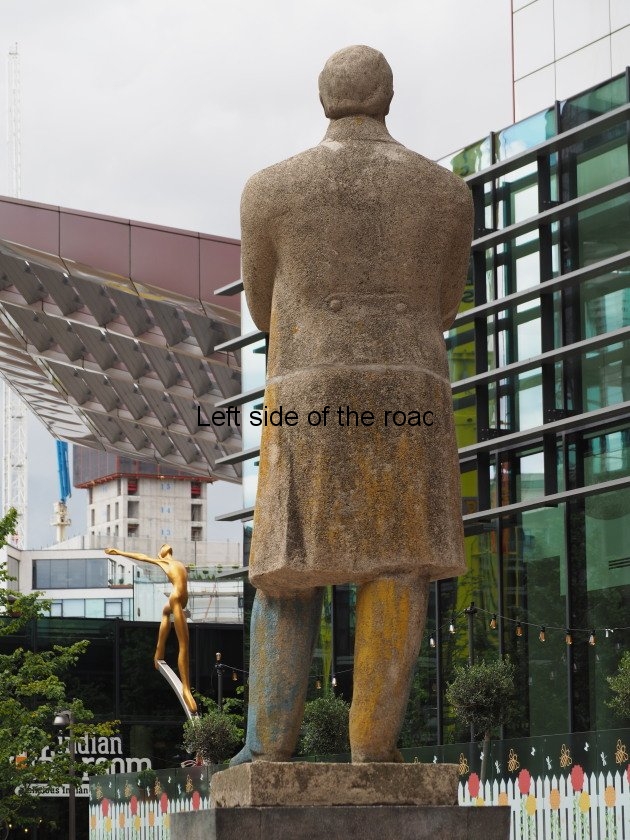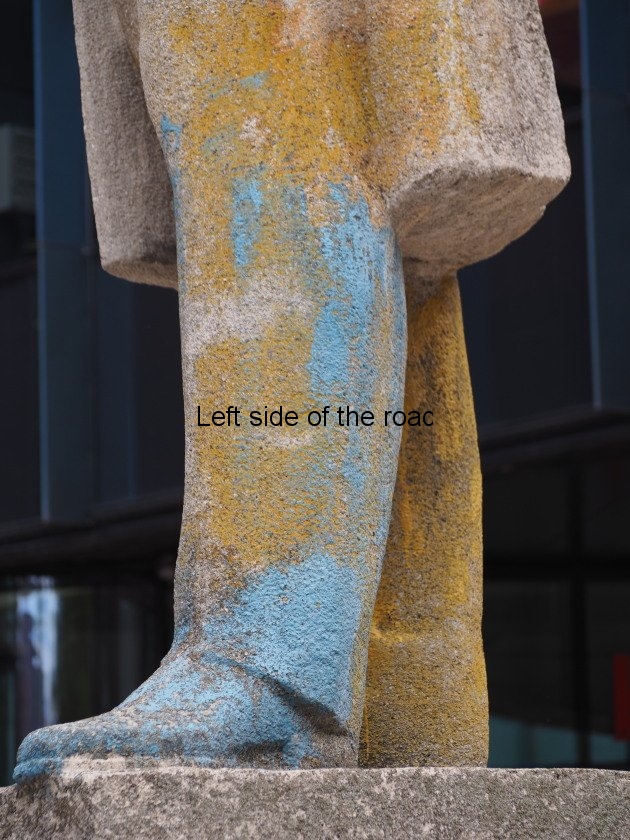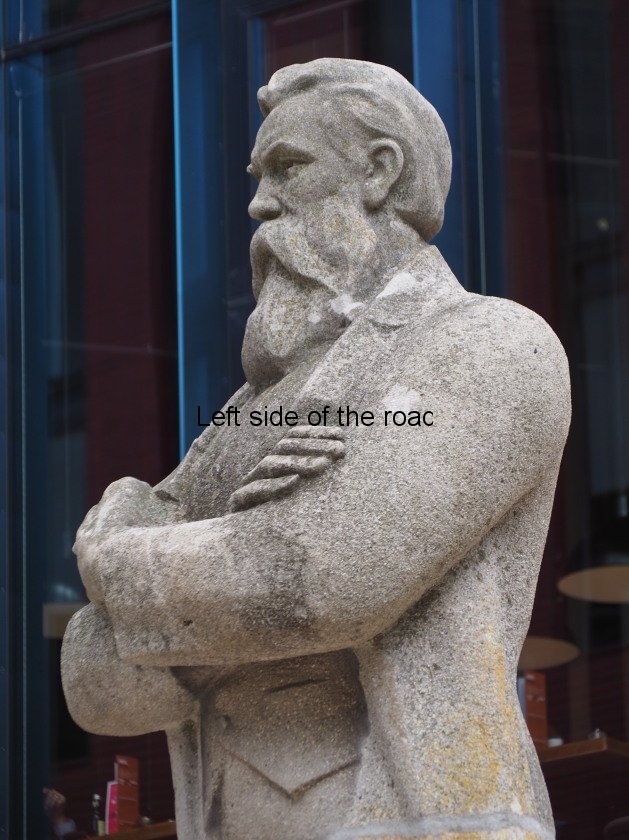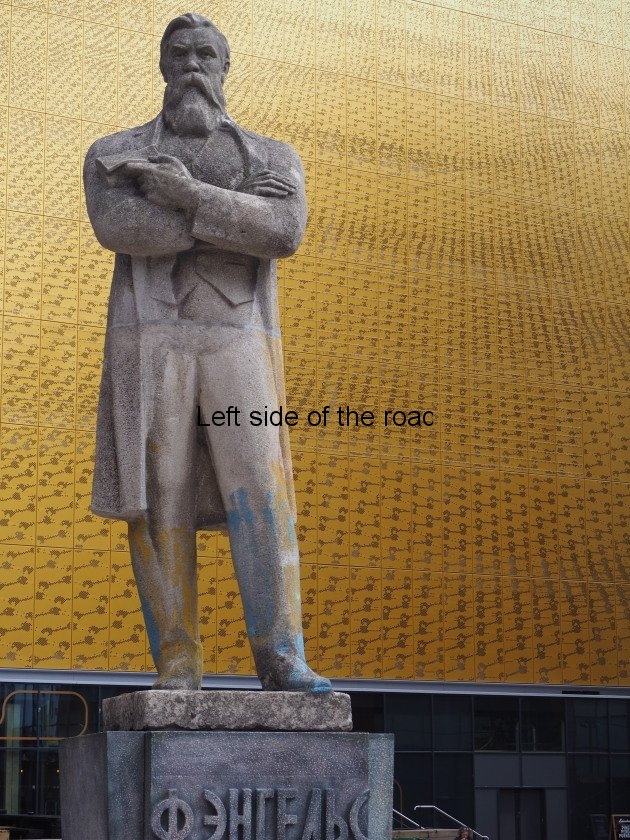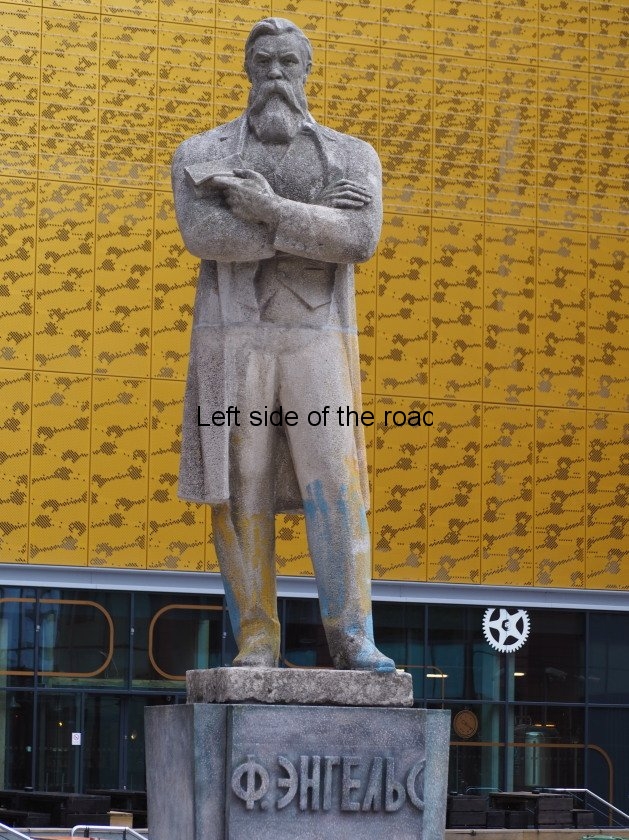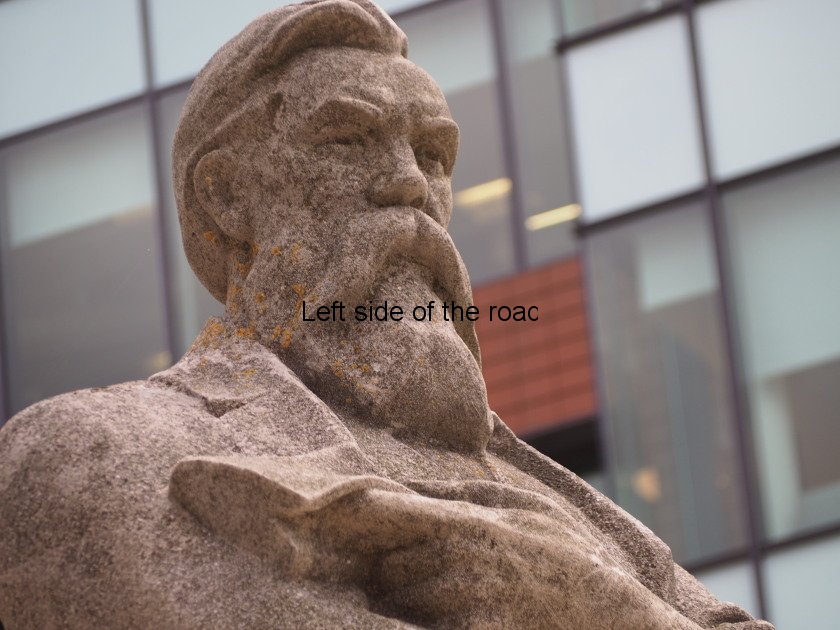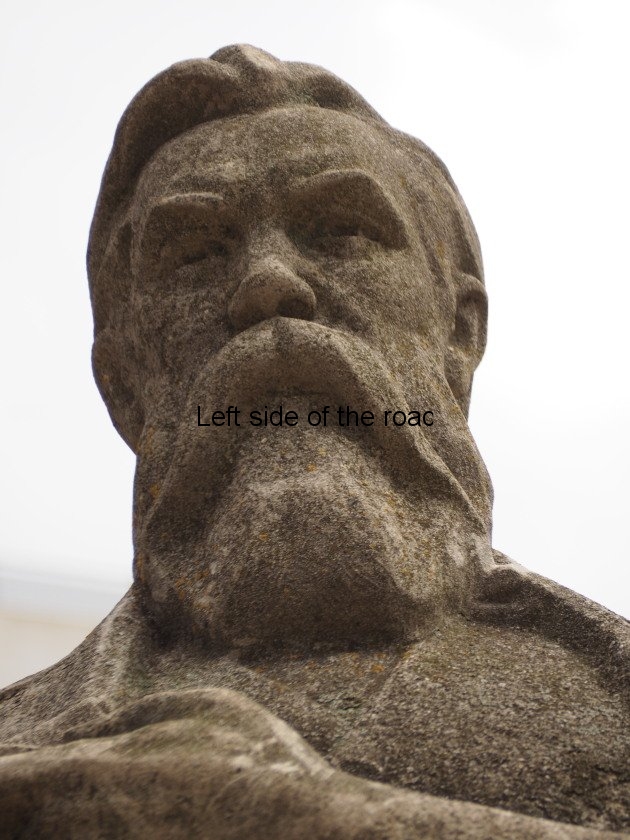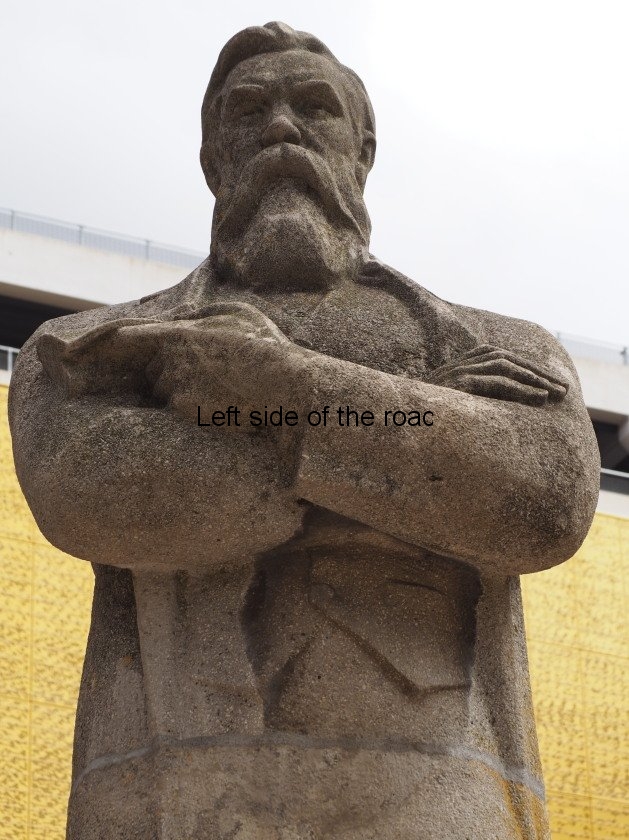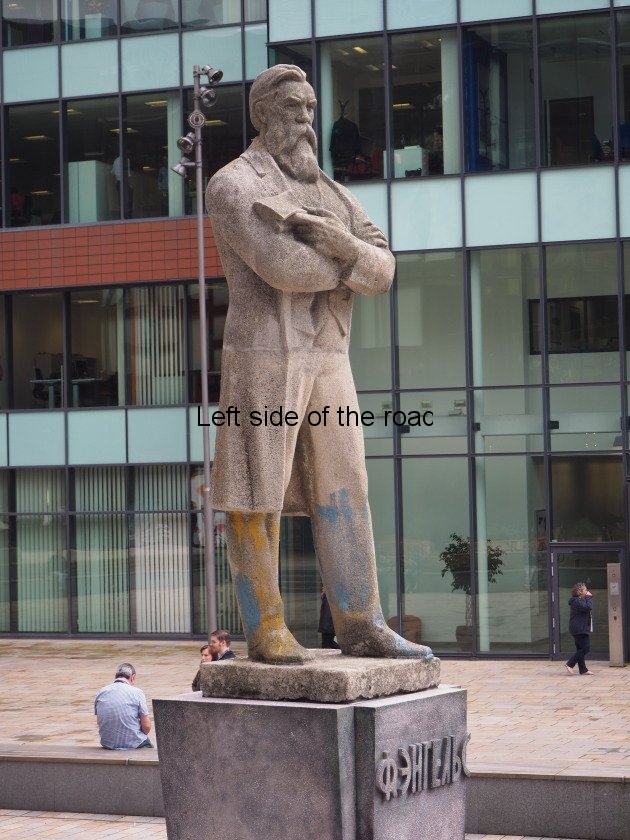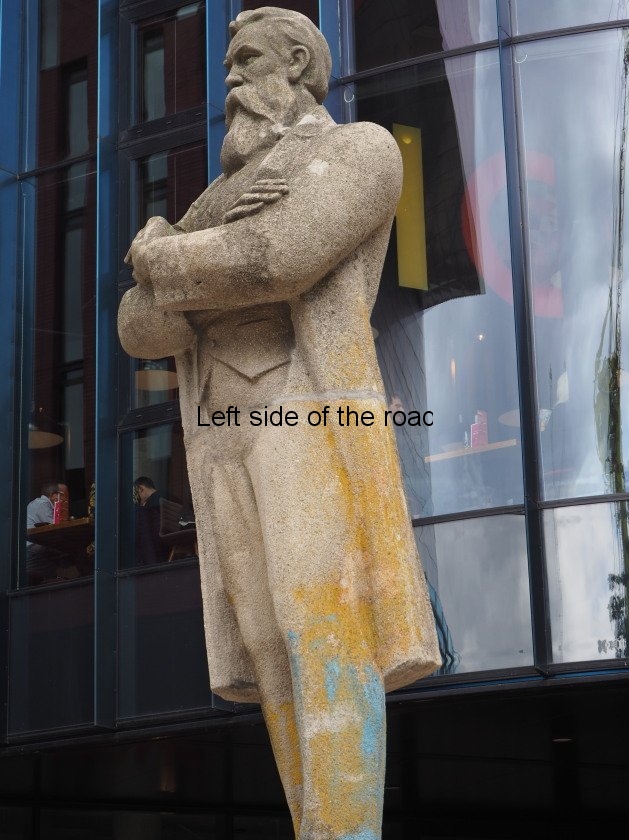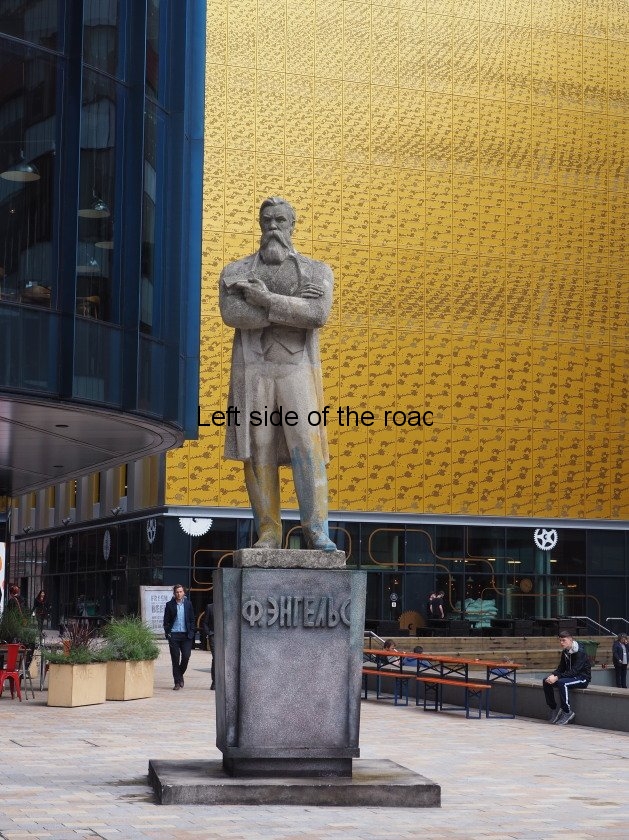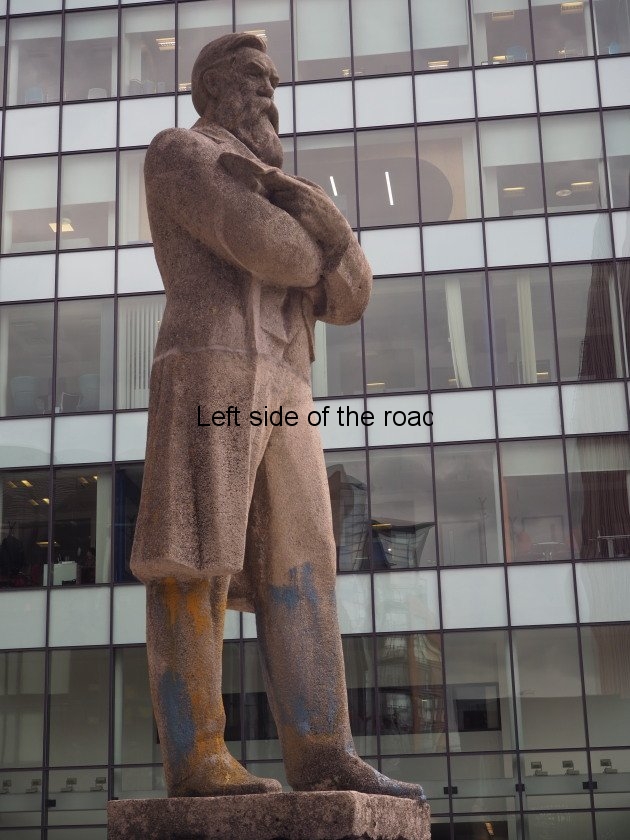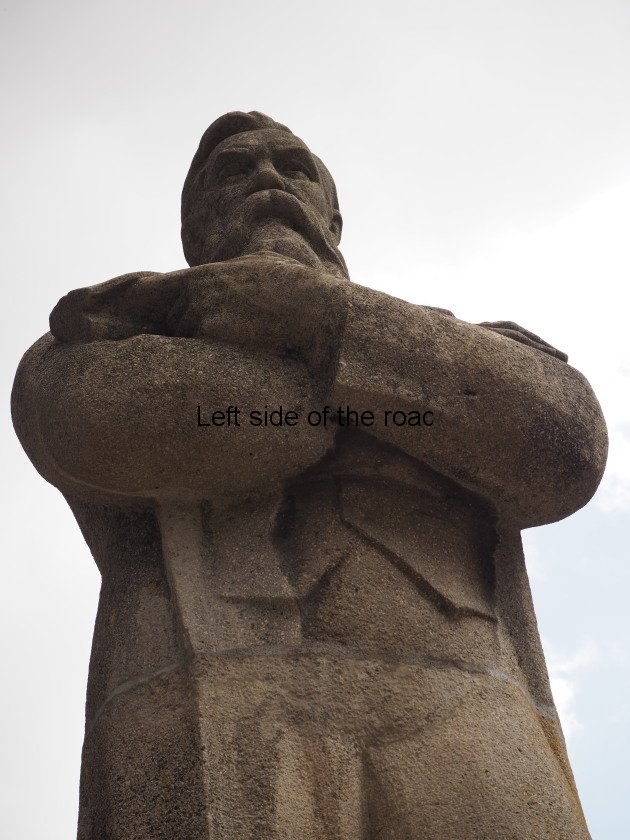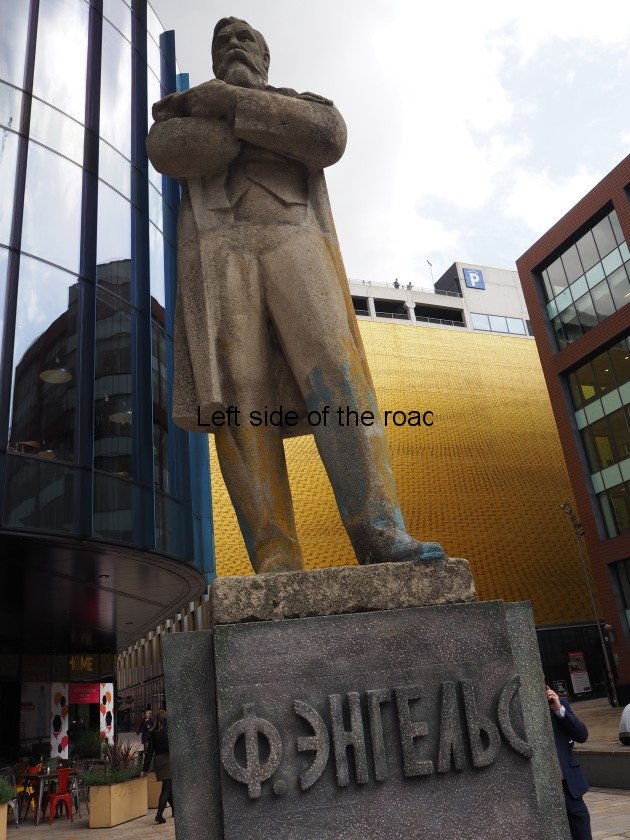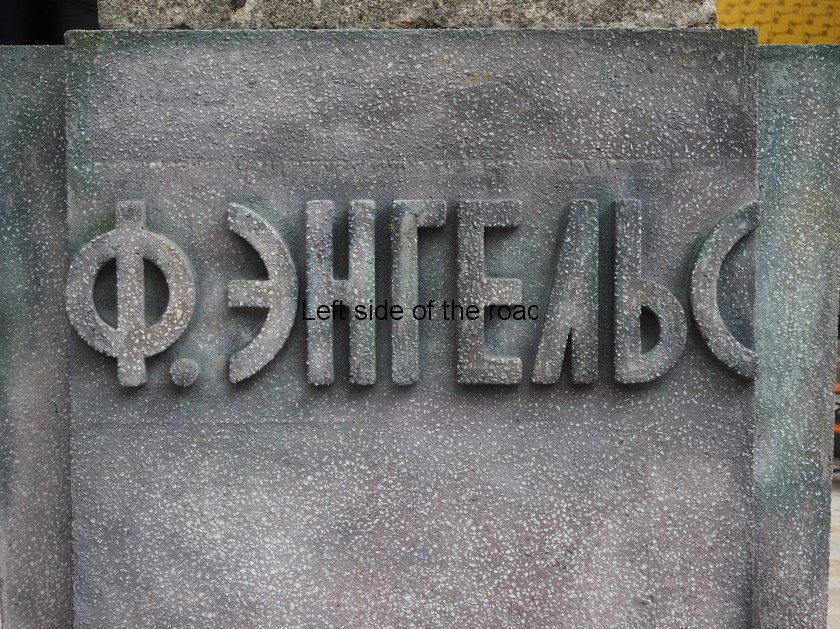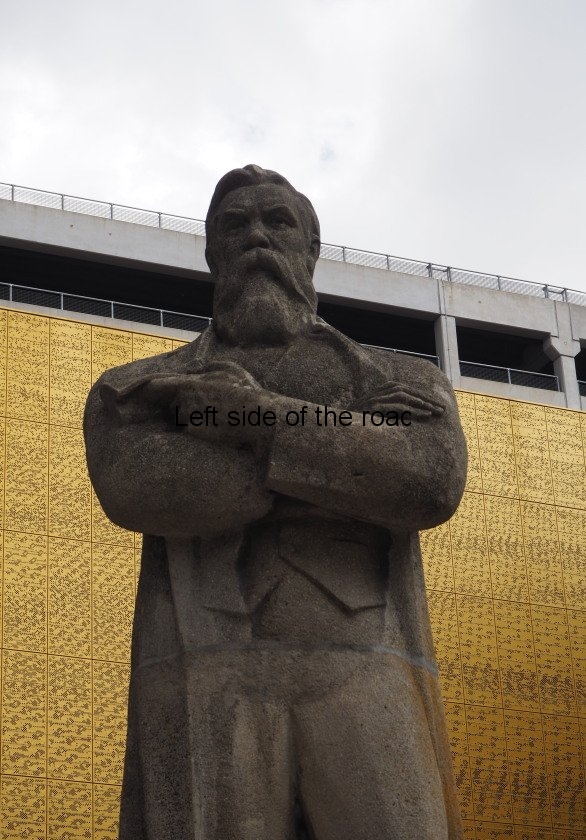
Towards Economic Abundance!
The Great ‘Marxist-Leninist’ Theoreticians
JV Stalin pamphlets, compilations, articles, correspondence and commentaries
A more comprehensive collection of the writings of Comrade Stalin can be found at JV Stalin – Collected Works and more about his life at JV Stalin – Biographies, Reminiscences and Appraisals.
An Interview with the German Author Emil Ludwig, December 13, 1931, (Moscow, 1932), 22 pages.
Problems of Leninism, International Publishers, New York, 1934, 95 pages. An early edition of the pamphlet that is generally known as ‘Foundations of Leninism’.
The Russian Revolution, writings and speeches from the February Revolution to the October Revolution, International, New York, 1938, 303 pages.
Marxism vs. Liberalism, an interview by H.G. Wells, July 23, 1934. New Century Publishers, New York, September 1945, 28 pages.
Letter from Stalin to G. Apresov, Council General in Urumqi, Xinjiang, July 27, 1934, in which Stalin strongly criticizes Sheng Shical, the Governor of Xinjiang, as a ‘provocateur or a hopeless ‘leftist”. Includes original handwritten letter by Stalin. (Wilson Center), 6 pages.
Shaw on Stalin, Russia Today Society, London, 1941, 11 pages.
Lenin and Stalin on Propaganda, Lawrence and Wishart, London, 1942, 32 pages.
On the Great Patriotic War of the Soviet Union, FLPH, Moscow, 1944, 180 pages.
On the Great Patriotic War of the Soviet Union, November 8th Publishing House, Toronto, 2025, 167 pages.
Marxism and the National Question, FLPH, Moscow, 1945, 80 pages.
Problems of Leninism, FLPH, Moscow, 1945, 642 pages.
War Speeches – Orders of the Day and Answers to Foreign Press Correspondents during the Great Patriotic War, July 3rd, 1941 – June 22nd 1945, Hutchinson, London, 1945, 140 pages.
On the Draft Constitution of the USSR – Constitution (Fundamental Law) of the USSR, FLPH, Moscow, 1945, 86 pages.
On the Draft Constitution of the USSR – Constitutional (Fundamental Law) of the Union of Soviet Socialist Republics, FLPH, Moscow, 1950, 130 pages.
Political Report of the Central Committee to the 14th Congress of the CPSU(B), December 18, 1925, FLPH, Moscow, 1950, 176 pages.
Political Report of the Central Committee to the 15th Congress of the CPSU(B), December 3, 1927, FLPH, Moscow, 1950, 144 pages.
The October Revolution and the tactics of the Russian Communists, Preface to the book ‘On the road to October’, FLPH, Moscow, 1950, 67 pages.
Political Report of the Central Committee to the 16th Congress of the CPSU(B), June 27, 1930, FLPH, Moscow, 1951, 191 pages.
Report to the Seventeenth Congress of the CPSU(B) on the work of the Central Committee, January 26, 1934, FLPH, Moscow, 1951, 131 pages.
On China: Writings from November 1926 to August 1927, Bombay, February 1951, 114 pages.
Report to the Eighteenth Congress of the C.P.S.U.(B.) on the Work of the Central Committee, March 10, 1939. FLPH, Moscow, 1951, 108 pages.
J.V. Stalin replies to Pravda correspondent on the atomic weapon, Soviet News, London, 1951, 4 pages.
Dialectical and Historical Materialism, FLPH, Moscow, 1951, 56 pages.
Anarchism or Socialism, FLPH, Moscow, 1951, 107 pages.
Economic Problems of Socialism in the USSR, FLPH, Moscow, 1952, 104 pages.
The law of value under Socialism, from Economic Problems of Socialism in the USSR, pp18-24
Speech at the 19th Party Congress, October 14, 1952, FLPH, Moscow, 1952, 20 pages. One of the last public speeches and appearances before his death in March 1953.
Anarchism or Socialism?, International, New York, 1953, 64 pages.
Five Conversations with Soviet Economists 1941-1952, np., nd., 21 pages.
Economic Problems of Socialism in the USSR, FLPH, Moscow, 1953, 106 pages.
Marxism and the National Question, FLPH, Moscow, 1954, 115 pages.
Prospects of the Revolution in China, Speech delivered in the Chinese Commission of the ECCI, November 30 1926, with Questions of the Chinese Revolution, Thesis for Propagandists, approved by the CC of the CPSU (B), (Moscow, FLPH, 1955), 100 pages.
Correspondence between the Chairman of the Council of Ministers of the USSR and the Presidents of the USA and the Prime Ministers of Great Britain the Great Patriotic War of 1941 – 1945, Volume 1, Correspondence with Winston S Churchill and Clement R Atlee, (July 1941 – November 1945), Progress, Moscow, 1957, 403 pages.
Correspondence between the Chairman of the Council of Ministers of the USSR and the Presidents of the USA and the Prime Ministers of Great Britain the Great Patriotic War of 1941 – 1945, Volume 2, Correspondence with Franklin D Roosevelt and Harry S Truman, (August 1941 – December 1945), Progress, Moscow, 1957, 291 pages.
On Stalin’s ‘Economic Problems’ – Part 1, ICO, Dublin, 1969, 40 pages. Irish Communist Organisation Pamphlet.
Marxism and Market Socialism – On Stalin’s ‘Economic Problems’ – Part 2, ICO, Dublin, 1969, 92 pages. Irish Communist Organisation Pamphlet No 16.
Notes and corrections to Marxism and Market Socialism.
Dialectical and Historical Materialism, Irish Communist Organisation, Dublin, 1970, 44 pages.
Stalin on Trotsky, Connolly Books, Cork, 1970, 30 pages.
Foundations of Leninism, International Publishers, New York, 1970, 127 pages.
Dialectical and Historical Materialism, Communist Party of Britain (Marxist-Leninist), 1972, 28 pages.
On the Personality Cult, ICO, Dublin, 1971, 12 pages.
Marxism and Problems of Linguistics, FLP, Peking, 1972, 55 pages.
Economic Problems of Socialism in the USSR, FLP, Peking, 1972, 101 pages. This is an almost exact reproduction of the Moscow, FLPH version published in 1952 (see above). The only difference is that this version has a couple of pages of Notes.
Dialectical and Historical Materialism, International Publishers, New York, 1972, 48 pages.
The essential Stalin, major theoretical writings 1905-1952, edited and with an introduction by Bruce Franklin, Croom Helm, London, 1973, 511 pages.
On Organization, (Calcutta, New Book Centre, 1974), 56 pages. 4 articles. On problems of Organisational Leadership; Cadres decide everything; Selection, promotion and Allocation of Cadres; On Practical Work. Plus 2 Appendices, one by LM Kaganovich and one by G Dimitrov.
The Foundations of Leninism, FLP, Peking, 1975, 128 pages. Lectures delivered at the Sverdlov University.
Principles of Party Organization, (Calcutta, Mass Publications, 1975), 47 pages. Thesis on the Organization and Structure of Communist Parties, adopted at the Third Congress of the Communist International in 1921. It was on this basis of this thesis that JV Stalin based his lectures reproduced in ‘The Foundations of Leninism’.
Stalin’s Speeches on the American Communist Party, (San Francisco, Proletarian Publishers, 1975), 39 pages. 3 articles. Speech delivered in the American Commission of the Presidium of the ECCI (May 6, 1929). Speech delivered in the Presidium of the ECCI on the American Question (May 14, 1929). Second Speech delivered at the Presidium of the ECCI on the American Question (May 14, 1929).
Dialectical and Historical Materialism, Mass Publications, Calcutta, 1975, 40 pages.
Stalin on Lenin, FLPH, Moscow, 1939, reprint by Red Star Press, London, 1975, 68 pages.
On October Revolution, Mass Publications, Calcutta, 1976, 107 pages.
Lenin, FLP, Peking, 1977, 56 pages.
Mastering Bolshevism, Speech to the Plenum of the Central Committee of the Communist Party of the Soviet Union, March 3, 1937. 19 pages.
The Stalin Question, (Calcutta, Kathashilpa, 1979), 400 pages. An Anthology on the question of Stalin. Edited by Banbehari Chakrabarty. ‘Brings together most of the relevant materials – adequately prefaced and annotated – highlighting the basic aspects of the question as reflected in the writings of Lenin, Mao, Khrushchev, Voroshilov, Zhukov, Togliatti, Tito, Garaudy, Hoxha, Trotsky and Stalin.’
Stalin on The October Revolution, Socialism and Industry, the Cold War, Communist Party of Britain (Marxist-Leninist), London, 1982, 24 pages.
My Dear Mr Stalin – the complete correspondence between Franklin D Roosevelt and Joseph V Stalin, Yale, New Haven, 2005, 382 pages.
Compilation from ‘Economic Problems of Socialism in the USSR’, directdemocracy4u.org, 2009, 158 pages.
The Kremlin Letters, Stalin’s Wartime Correspondence with Churchill and Roosevelt, edited by David Reynolds and Vladimir Pechatnov, Yale University Press, New Haven, 2018, 693 pages.
The Foundations of Leninism, written in April-May 1924, Foreign Languages Press, Paris, 2020 (reprint of the Peking edition of 1970), 112 pages.
Anarchism or Socialism and Trotskyism or Leninism, Foreign Languages Press, Paris, 2020, 152 pages.
Stalin’s Works – an annotated bibliography, compiled by Robert H McNeal, Hoover Institution, n.d, 197 pages.
Dialectical and historical materialism, November 8th Publishing House, Toronto, 2022, 63 pages.
Economic problems of Socialism in the USSR, November 8th Publishing House, Toronto, 2022, 123 pages.
JV Stalin – Last writings, 1946-1953, November 8th Publishing House, Ottawa, 2024, 746 pages.
JV Stalin, Selected works, November 8th Publishing House, Ottawa, 2023, 769 pages.
Letters to the Central Committee of the Communist Party of Yugoslavia, November 8th Publishing House, Toronto, 2022, 88 pages.
Letters to the Communist Party of Yugoslavia and other documents, J.V. Stalin and V.M. Molotov, Sava Press, Toronto, 2025, 157 pages.
Compilations from the works of JV Stalin with other great Marxists
From the First to the Second Five-Year Plan, a Symposium, J Stalin, V Molotov, L Kaganovich, K Voroshilov and others, Co-operative Publishing Society of Foreign Workers in the USSR, Moscow, 1933, 490 pages.
A Handbook of Marxism, with selections from the works of Marx, Engels, Lenin and Stalin, International Publishers, New York, 1935, 1082 pages,
Strategy and Tactics of the Proletarian Revolution, (N.Y., International, 1936), 95 pages. Consists of a series of brief extracts mostly from the works of Lenin, Stalin and from some reports of the Comintern.
The Dictatorship of the Proletariat, articles and extracts from the works of Marx, Engels, Lenin and Stalin, compiled and arranged by V. Bystryansky and M. Mishin, ‘Readings in Leninism’ series, International, New York, 1936, 132 pages.
Lenin and Stalin on Youth, Lawrence and Wishart, London, 1940, Little Lenin Library, Volume Twenty One, 48 pages.
Ten Classics of Marxism, Marx, Engels, Lenin and Stalin, International Publishers, New York, 1940, 785 pages.
Lenin and Stalin on The State, Lawrence and Wishart, London, 1942, Little Lenin Library, Volume Twenty Three, 48 pages.
Dialectical and Historical Materialism, edited by LL Sharkey and S Moston, Current Book Distributors, Sydney, 1945, 152 pages.
Selections from V. I. Lenin and J. V. Stalin on the National and Colonial Question, Calcutta, 1970, 244 pages.
Marxism and the Liberation of Women, Quotations from Karl Marx, Frederick Engels, VI Lenin, Joseph Stalin and Mao Tse-tung, Union of Women for Liberation, London, n.d., mid-1970s?, 64 pages. Includes a statement of aims of the Union of Women for Liberation.
Marx, Engels and Lenin: On the Dictatorship of the Proletariat, a collection of quotations, FLP, Peking, 1975, 52 pages. (Some underlining.) This collection also appeared in Peking Review on February 28, 1975.
The Woman Question, Marx, Engels, Lenin and Stalin, International Publishers, New York, 1977, 96 pages.
On the Communist Press, Lenin, Stalin and Mao Tsetung, Canadian Communist League (Marxist-Leninist), n.d., 200 pages.
Last letters and articles of VI Lenin and On Lenin by JV Stalin, November 8th Publishing House, Ottawa, 2022, 152 pages.
V.I. Lenin and J.V. Stalin, Marxism and Revisionism, November 8th Publishing House, Toronto, 2022, 119 pages.
In Spanish
El Marxismo y los Problemas de la Linguistica, FLP, Peking, 1976, 55 pages.
The Death of Stalin
The Death of Stalin – An investigation by ‘Monitor’, Allan Wingate, London, 1958, 144 pages. This is a strange one. I assume, but am not definite, that this was a publication of the Christian Science Monitor organisation. It’s certainly not a ‘pro-Stalin’ nor pro-Soviet approach towards the death of JV Stalin. However, the conclusion that Stalin was almost certainly murdered is interesting. Or one of the earlier ‘conspiracy theories’?
About Stalin
Stalin’s Library – a dictator and his books, Geoffrey Roberts, Yale University Press, New Haven, 2022, 259 pages.
Stalin and the struggle for democratic reform – Part 1, Grover Furr, Cultural Logic, 2005, 31 pages.
Stalin and the struggle for democratic reform – Part 2, Grover Furr, Cultural Logic, 2005, 17 pages.
Anti-Stalin falsehoods from a ‘socialist’ writer – refuting Alex Skopic’s article ‘Stalin will never be redeemable’ – Grover Furr, April/May 2023, 41 pages.
Joseph Stalin – A biographical companion, Helen Rappaport, ABC-CLIO, Santa Barbara, 1999, 372 pages.







